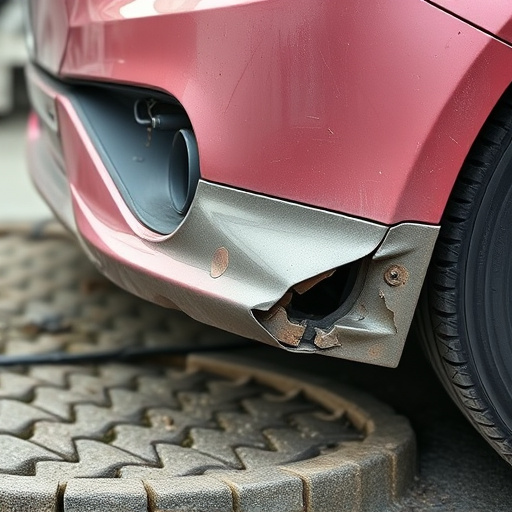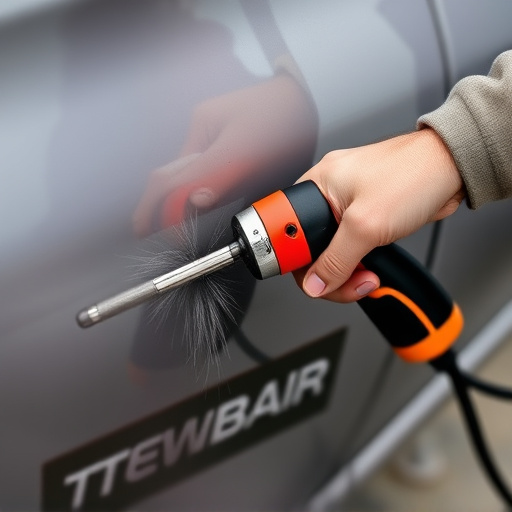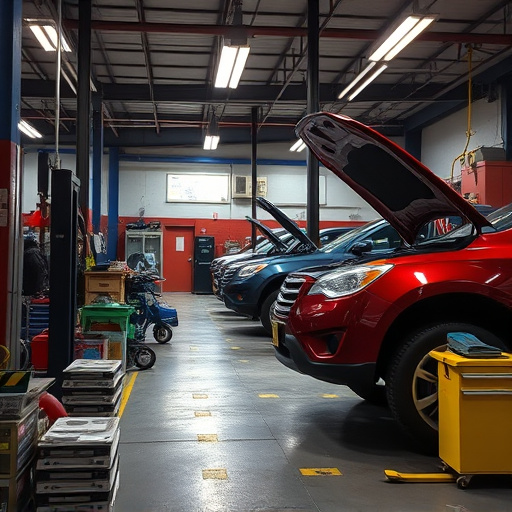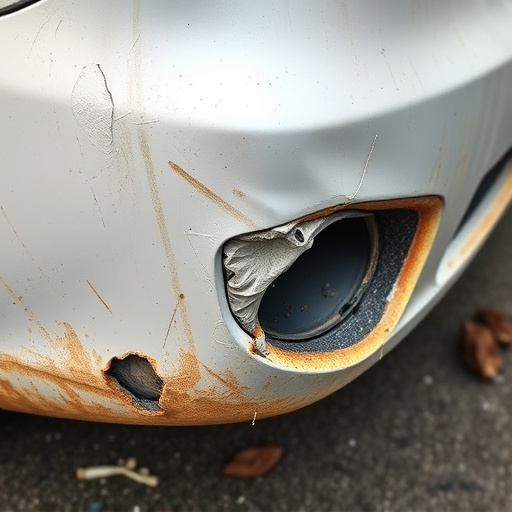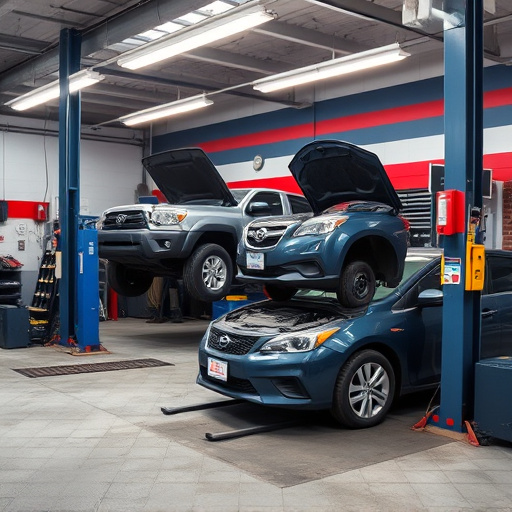Auto shops face challenges in repair progress tracking due to lack of standardization, complex modern automotive systems, and project multitasking. Implementing advanced software and mobile apps for repair progress tracking is crucial for enhancing efficiency, accuracy, customer communication, and overall satisfaction in today's competitive market. These tools streamline operations, reduce errors, optimize resource allocation, and speed up turnaround times, making them essential for success in the auto restoration industry.
Auto shops face significant challenges in managing repair progress tracking, often leading to delays and dissatisfied customers. As vehicles become increasingly complex, keeping track of repair statuses can be a daunting task. This article explores the common hurdles shop owners encounter, offering insights into how digital solutions can streamline processes. We delve into effective strategies, such as adopting advanced software, to enhance customer satisfaction and retention, ensuring auto shops stay competitive in today’s market.
- Understanding Common Challenges in Repair Progress Tracking
- Implementing Effective Digital Solutions for Auto Shops
- Streamlining Processes to Improve Customer Satisfaction and Retention
Understanding Common Challenges in Repair Progress Tracking

In the realm of auto shops, effective repair progress tracking is paramount for ensuring efficiency and customer satisfaction. However, several common challenges impede this process. One significant hurdle is the lack of standardized systems; many auto body shops still rely on manual methods or outdated software, leading to inconsistencies and inaccuracies in recording and monitoring vehicle restoration progress. This can result in delays, miscommunication between staff members, and even errors in billing.
Moreover, managing repair progress tracking becomes complex when dealing with intricate vehicle restoration processes. The intricate nature of modern automotive systems often requires specialized knowledge for accurate diagnostics. Auto shops face the challenge of keeping up with these evolving technologies, ensuring that their staff is adequately trained to document and track repairs precisely. Additionally, balancing multiple projects simultaneously can lead to confusion and delays, impacting overall workflow efficiency.
Implementing Effective Digital Solutions for Auto Shops

In today’s digital era, auto shops are facing increasing pressure to streamline their operations and enhance customer satisfaction, which is where implementing effective digital solutions for repair progress tracking comes into play. By leveraging advanced software and mobile applications, auto shops can transform their traditional manual processes into efficient, real-time systems. This shift enables them to better manage complex repairs, including fender repair, car collision repair, and even intricate auto glass replacement tasks. With digital tools, shop managers gain valuable insights into the status of each vehicle, allowing for proactive communication with customers and informed decision-making.
By adopting these solutions, auto shops can significantly improve accuracy, reduce errors, and enhance overall efficiency. Real-time tracking enables technicians to document repair progress, access relevant historical data, and collaborate seamlessly, ensuring every step is accounted for. Moreover, digital systems offer unparalleled convenience for customers, who can easily monitor the status of their vehicles, receive updates, and stay informed about potential delays or additional services required, such as auto glass replacement after a collision.
Streamlining Processes to Improve Customer Satisfaction and Retention

In today’s competitive market, auto shops must streamline their processes to meet customer expectations and foster retention. One significant challenge they face is managing repair progress tracking effectively. Auto collision centers and auto body shops that adopt advanced repair progress tracking systems can enhance customer satisfaction by providing transparent updates on their vehicle’s status. This simple yet powerful approach ensures customers are well-informed, reducing anxiety and building trust.
By implementing efficient tracking methods, these businesses streamline their operations, allowing for better resource allocation and faster turnaround times. Such improvements not only benefit the auto shop but also attract and retain more customers. In an industry where reputation is built on reliability and quality service, keeping clients satisfied and coming back for future repairs is paramount, especially as they look to build a loyal customer base in the competitive automotive restoration market.
Auto shops facing challenges with repair progress tracking can no longer rely on traditional methods. It’s imperative to implement digital solutions that streamline processes, enhance transparency, and improve customer satisfaction. By adopting efficient repair progress tracking systems, shops can boost retention rates, reduce errors, and offer a competitive edge in today’s market. This shift towards digitalization is not just a trend but a necessity for auto repair businesses aiming for long-term success.
